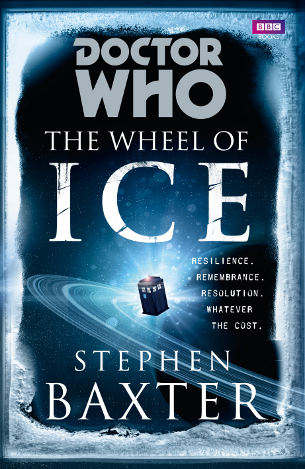Why you can trust GamesRadar+
Anyone expecting Stephen Baxter to give us the 2001: A Space Odyssey of Doctor Who novels will be disappointed. There’s some hard SF in here for sure, but his Second Doctor, Jamie and Zoe tale is Doctor Who to the core - both classic and new, oddly enough. Because while at times it’s so authentically Troughton-era that the world seems to fade to monochrome as you read it, at others Baxter seems to be auditioning as a scriptwriter for the new series. “Look! Skiing on Titan! Timey-wimey stuff! A Scottish robot! I can do silly!”
It’s no coincidence the book has a title similar to TV's “The Wheel In Space”. It’s set just a few decades earlier, and Baxter has fun showing Zoe’s discomfort in this familiar yet unfamiliar setting, as early human colonists struggle to mine one of Saturn’s moons. Of course, there’s something inside the moon they really shouldn’t disturb…
Yep, it’s classic Troughton base-under-siege stuff. But Baxter adds some sci-fi twists, solid science and a few gloriously unexpected continuity references. His characterisation of the regulars is spot on (usually… we did wince once when the Doctor says, “anyhow”), with Jamie and Zoe used extremely well.
The monsters are a bit bland and occasionally you wonder if some iffy plotting choices are supposed to be homage. And while it’s all highly entertaining, it is a slight shame that Baxter decides to bend his style to Who rather than making Who bend to his.
Dave Golder
Read our Doctor Who: The Krotons review .
Read our Doctor Who: Dark Horizons review (an Eleventh Doctor book by Jenny Colgan) .
Read our latest Doctor Who series 7 news .

Dave is a TV and film journalist who specializes in the science fiction and fantasy genres. He's written books about film posters and post-apocalypses, alongside writing for SFX Magazine for many years.



